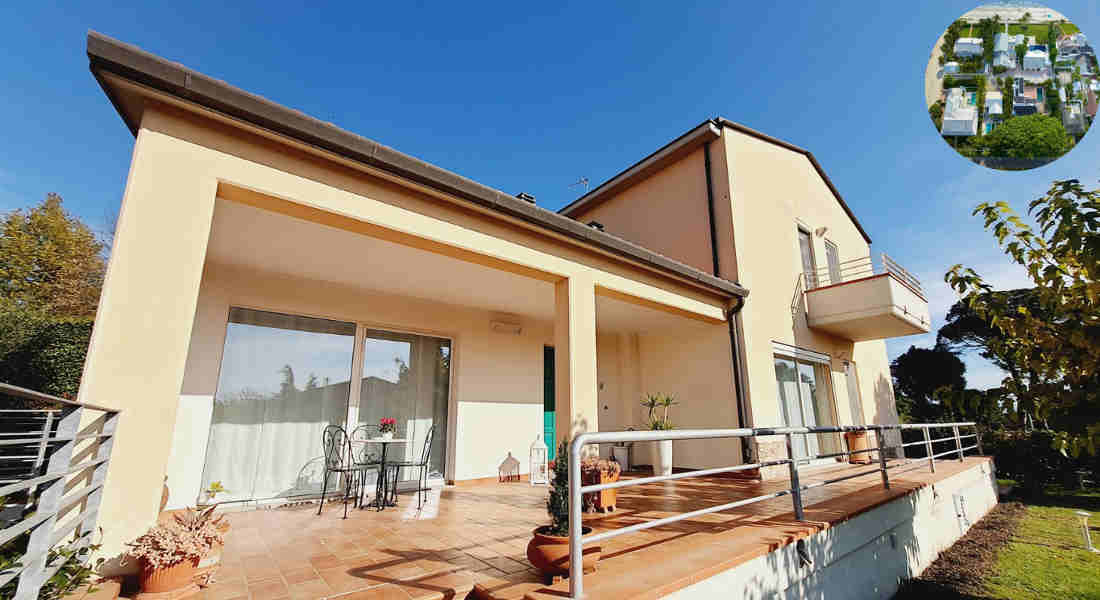In the world of real estate, understanding terminology is crucial. Whether you are a seasoned investor or a first-time homebuyer, knowing the terms involved can significantly impact your decisions. One term that has gained popularity in recent years is STR, which stands for Short-Term Rental.
We will delve into the inner workings of STRs, their benefits and challenges, and the essential terms that every potential investor should be familiar with.
In a rapidly changing real estate landscape, understanding Short-Term Rentals (STRs) can mean the difference between a successful investment and lost opportunities. So, whether you’re looking to invest or want to know more about this growing trend, keep reading as we uncover the essential aspects of STRs.
What Does STR Stand For in House Real Estate?

To break it down, STR stands for Short-Term Rental. This term refers to properties rented out for a short period, typically less than 30 days. These rentals can span from just a few days to several months, making them a flexible option for both property owners and tenants.
Typical Duration of STR Leases
Short-term rentals are defined by their lease duration. Most STR leases last for less than 30 days, allowing for a quick turnover of guests and potentially higher income. This flexibility is appealing to both travelers seeking temporary accommodation and property owners looking to maximize their rental income.
Types of Properties Used as STRs
When discussing STRs, it’s essential essential to recognize the types of properties typically involved. They can include:
- Houses: Standalone residences often rented for family vacations.
- Condos: Multi-unit buildings that offer shared amenities.
- Apartments: Ideal for short stays in urban settings.
- Shared Accommodations: Options such as renting a room in a house provide a more affordable choice for travelers.
Platforms Commonly Used for STRs
The rise of technology has made it easier than ever to list and rent short-term properties. Popular platforms include:
- Airbnb: The most recognized platform for STRs, offering a wide variety of accommodations.
- VRBO: Focused on vacation rentals, often catering to families and larger groups.
- Booking.com: A comprehensive travel site that includes STR listings among traditional hotels.
How STRs Work in the Real Estate Market

Understanding how STRs operate is crucial for anyone considering this investment avenue.
Process of Listing and Renting an STR Property
The process of listing an STR property typically involves the following steps:
- Create a Listing: Property owners upload photos and descriptions of their space to a rental platform.
- Set Rental Rates: Pricing can be dynamic and influenced by demand, season, and local events.
- Receive Bookings: Guests can book their stay directly through the platform, often with instant confirmation.
- Manage Payments: The platform usually handles payment processing, providing security for both guests and hosts.
You may also read (how to determine if youre overpaying for a house).
Key Features of STRs
STRs come with several attractive features:
- Furnished: Most short-term rentals (STRs) are fully furnished, making them ready for immediate occupancy.
- Flexible Rental Periods: Owners can choose when to rent their property, allowing for personal use at other times.
- Home-like Amenities: Many short-term rentals (STRs) offer kitchens, laundry facilities, and other comforts that hotels may lack.
Example Scenario: Renting Out a Condo as STR
Imagine you own a condo in a popular tourist destination. Here’s how you might rent it out as an STR:
- Listing: You create an appealing listing on Airbnb with high-quality photos and a detailed description.
- Booking: A family books your condo for a week during peak season.
- Payment: The platform processes the payment, and you receive your earnings minus the platform’s fees.
Differences Between STRs and Traditional Long-Term Rentals (LTRs)
Understanding the distinctions between Short-Term Rentals (STRs) and traditional Long-Term Rentals (LTRs) is essential. Here are a few key differences:
- Duration: STRs are typically rented for days or weeks, while LTRs are leased for months or years.
- Income: STRs can generate higher income per night, but this income may be more variable compared to the consistent monthly income from LTRs.
- Flexibility: STRs offer greater flexibility to owners, who can block dates for personal use, whereas LTRs require a longer-term commitment.
Benefits of STRs for Property Owners

Investing in STRs can be a lucrative opportunity for property owners. Here are some of the key benefits:
Additional Income Potential
One of the most attractive aspects of STRs is the potential for additional income. Compared to traditional long-term rentals, short-term rentals (STRs) often yield higher rental rates, especially during peak seasons.
Flexibility in Property Use
STRs enable property owners to enjoy personal use of their properties when they are not rented. This flexibility can be particularly appealing for vacation homes, where owners can use the property during off-peak times.
Diversification of Rental Income Streams
By offering their properties as short-term rentals (STRs), owners can attract a diverse range of guests, including vacationers and business travelers. This diversification can stabilize income and reduce reliance on any single market segment.
Increased Property Value and Marketability
Properties that are well-maintained and successfully operated as STRs can see an increase in value. Moreover, they often become more marketable due to their income-generating potential.
Challenges and Considerations When Investing in STRs
While STRs offer numerous benefits, they also present challenges that potential investors should consider.
Local Regulations and Zoning Laws
Before investing in an STR, it’s crucial to understand local regulations and zoning laws. Some areas have strict rules governing short-term rentals, including requirements for permits, taxes, and limitations on rental days.
Insurance Needs
Investing in STRs requires specific insurance coverage. Traditional homeowner’s insurance may not cover short-term rentals, so obtaining STR insurance is essential to protect against potential liabilities.
You may also read (how to safeguard furniture during house moves).
Maintenance and Management Challenges
Frequent tenant turnover can lead to increased maintenance and management challenges. Owners may need to hire property management companies or cleaning services to keep the property in top condition.
Impact on Neighborhood Dynamics
STRs can sometimes create tensions within neighborhoods, particularly if residents feel that short-term rentals disrupt the community’s character. Understanding and fostering good relationships with neighbors is crucial for the successful operation of STRs.
Tax Implications and Reporting
Income generated from STRs is subject to taxation, and owners are required to accurately report this income. Additionally, some jurisdictions impose hotel or occupancy taxes on short-term rentals (STRs), which can impact profitability.
STR Market Trends and Future Outlook

The STR market is evolving and influenced by a range of factors. Understanding these trends can help investors make informed decisions.
Current Real Estate Market Trends Involving STRs
As travel patterns shift, STRs have gained popularity. The rise of remote work has allowed more people to travel for extended periods, increasing the demand for flexible rental options.
Growth of STR Platforms
Platforms like Airbnb and VRBO continue to grow, adapting to the evolving preferences of travelers. Features like instant booking and user-friendly interfaces make it easier for guests to find suitable accommodations.
Impact of Economic Factors on STR Demand
Economic conditions, including interest rates and disposable income, can impact STR demand. Understanding these factors helps investors gauge market potential.
Predictions for STR Regulations and Market Evolution
As STR’s popularity increases, so too does scrutiny from local governments. Future regulations aim to strike a balance between the interests of property owners, communities, and the hospitality industry.
Essential Terms Related to STR in Real Estate
When exploring STRs, it’s essential to be familiar with a few key terms that frequently come up in discussions. Here’s a breakdown:
Vacation Rentals
These properties are primarily rented out for leisure travel, offering home-like amenities and flexible stays.
Corporate Housing
This refers to furnished apartments available for short-term lease, often used by businesses for traveling employees.
Shared Accommodations
These involve renting out a room or space within a home, allowing guests to share amenities with the host.
Rental Yield
This term refers to the income generated from a property, typically expressed as a percentage of its market value.
Occupancy Rate
The occupancy rate is the percentage of available rental units that are occupied over a specific period. Higher occupancy rates indicate better performance for short-term rentals (STRs).
Host and Guest Responsibilities
Both hosts and guests have responsibilities in a short-term rental (STR) arrangement. Hosts must provide a clean and safe environment, while guests are expected to respect the property and adhere to the house rules.
STR vs. Long-Term Rentals: A Comparative Analysis
To provide a more precise understanding, here’s a comparative analysis of STRs and long-term rentals (LTRs):
FeatureShort-Term Rentals (STR) and Long-Term Rentals (LTR)
Rental Duration Days to weeks (usually < 30 days) Months to years
Income Stability Variable, higher per night Stable, consistent monthly income
Flexibility High (owner can block dates) Low (fixed lease terms)
Maintenance Frequency High (frequent tenant turnover) Lower
Regulatory Complexity Often more regulated Usually less regulated
Tips for Successful STR Investment
If you’re considering investing in STRs, here are some essential tips:
- Research Local Laws: Before making any investment, familiarize yourself with local regulations regarding short-term rentals (STRs).
- Invest in Quality Furnishings: High-quality furnishings and amenities can significantly enhance guest experience and increase bookings.
- Professional Management: Consider hiring professional management or cleaning services to ensure your property is well-maintained and consistently clean.
You may also read (a guide to home etal in real estate explained)

